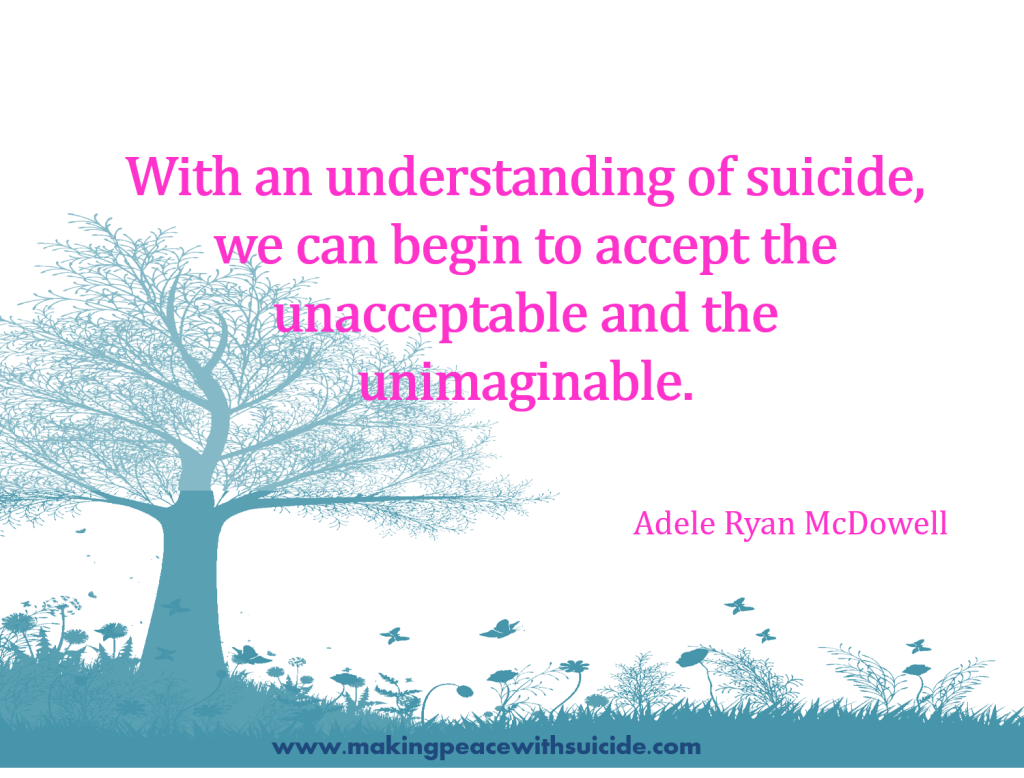grief and support
A few words on grief
 Grief is a personal experience. Nod politely to those who give you deadlines and concrete conclusions. There is no one way to grieve. There is no time limit. It takes as long as it takes. Grief is a kind of love and a way to remember. Grief can be a master teacher and a doorway to transformation. Grief fine-tunes life and can shift your perspective. And grief, by sheer experience, will reassemble your heart.
Grief is a personal experience. Nod politely to those who give you deadlines and concrete conclusions. There is no one way to grieve. There is no time limit. It takes as long as it takes. Grief is a kind of love and a way to remember. Grief can be a master teacher and a doorway to transformation. Grief fine-tunes life and can shift your perspective. And grief, by sheer experience, will reassemble your heart.
Grief is also complicated, multi-nuanced and can be crazy-making. And like Pandora’s box, grief triggers memories of other losses. Memories that are held in the cells of your body.
Go gently. Allow the memories to wash over you, not knock you down. Allow your heart to rest. Be kind to yourself. Be kind to your lost loved one. It’s a courageous and arduous path of working your way through the rocky terrain of emotional upheaval. Grace, grit and determination are required as you make peace with what was. Ultimately, it is a process of fierce love and compassionate acceptance.
Children of suicide
Suicide is frequently a sudden, surprising and shocking death that leaves family members reeling in disbelief and heartache. Suicide is akin to lobbing an explosive into the middle of the family. There is enormous collateral damage.
For children, the death of a parent is a traumatic event, which is especially intensified for young children. However, when the death is a suicide, the trauma is heightened even more.
Arguably, suicide is the hardest death to accept. There are so many unanswered questions.
Young children do not readily understand the concept of suicide.
Read more here.
(Young Minds Matter initiative: http://www.huffingtonpost.ca/adele-mcdowell/children-of-suicide_b_9233092.html)
Suicidal grief: non-ordinary time
 Loss is universal. It is also idiosyncratic and unique. We each handle loss in our own way. There is no right or wrong way to come to terms with death.
Loss is universal. It is also idiosyncratic and unique. We each handle loss in our own way. There is no right or wrong way to come to terms with death.
It is hard, exhausting, and excruciating work to make sense of the un-sensible and to unpack and repack a life that you have held with such love and affection. You will need time and space to work through all the layers of feelings as you remember and revisit all that you experienced and shared with the one you lost.
Loss requires time, time to accept the unacceptable and time to feel the undulations and reverberations of your loss. There is no time limit—grief takes as long as it takes. Grief opens you up in ways you never thought possible. Unexpectedly, you will find yourself remembering other losses in your life as well. Grief builds upon grief; like pearls strung on a necklace, every loss becomes connected, close to your heart.
Trauma is also a cumulative experience. We hold traumatic events in our cellular memories. They are not forgotten. And like grief, a new trauma can trigger feelings from a prior trauma. This is important to consider, as suicide is both a traumatic and grief-filled experience. The double whammy of grief and trauma can sometimes be so overwhelming that it is hard for you to stand or eat or sleep or even make simple conversation.
Dealing with a suicidal loss requires extreme gentleness as you wade through the minefields of emotions. Past, present and future can collide in a stream of what was and what could have been.
This is non-ordinary time. You will see the world differently. Your baseline has changed. What was once terra firma is no more. Everything is shifting around you. You wade through deep emotions, conflicting feelings and the sheer agony of loss.
And, then, when you are hollowed out and spent, there will be a day– as unbelievable as it feels — when you refind your feet and connect with your newly pieced-together heart. On that day, you will be to take a step forward without toppling over.
Go in peace, dear one.
When you are the survivor of suicide
Suicide is not an easy conversation. Period. It is weighted with the feelings of real or perceived judgment and taboo.
Survivors search and seek for answers and clues about the thinking and feeling behind their loved one’s choice to irrevocably end it all. How could this be? Why did this happen? What caused this? What was the tipping point? Didn’t you love me and the kids enough to stay? What could I have done differently? Why aren’t you here? You know it was their choice, but you still feel responsible — in a conflicted, connected way — and wonder if you could have done anything to change the outcome.
For the survivor, suicide is unbelievable and surreal. It is a game changer. Your life is permanently altered. It is the day time stands still. It is the day you stop taking a full breath. It is, alas, the day people can avoid you; talk about you; and, even, blame you.
Continue reading here:
http://www.huffingtonpost.ca/adele-mcdowell/grieving-suicide_b_8615376.html
Another year passes
Another years passes. It does not take way the sadness. In fact, the new year can be like a knock at the door reminding you of what has been lost. Hopefully, as you have  navigated the deep and often treacherous waters of grief, you have regained some of your footing and been able to take a deep breath or two. You know life is a process and a progression but none of that really helps. What helps is remembering and talking and feeling the heart connection with your lost loved one.
navigated the deep and often treacherous waters of grief, you have regained some of your footing and been able to take a deep breath or two. You know life is a process and a progression but none of that really helps. What helps is remembering and talking and feeling the heart connection with your lost loved one.
This year, if you don’t already do it, look for signs and symbols. As a teacher of mine once told me — and as she was told by her teacher — if you think it’s a sign or a message, it is. Follow your heart. There may be a blue heron circling or a yellow butterfly that hangs out for 20 minutes on your arm or the sound of your son’s laughter. One man thought it was his imagination as he often felt his brother in the passenger seat of his car as he drove to work. A medium later confirmed his frequent morning experiences.
This year, open your heart and mind to the possibility of more connection and confirmation from the other dimensions. All things are possible. And love is a powerful force of connection.
Understanding helps us heal
After you have lost a loved one to suicide, you feel anything but powerful or strong. Most likely, you are at your most vulnerable, full of heartbreak and deep grief.
Suicide leaves a trail of questions and uncertainties. Knowledge can help make some sense of the unimaginable. When we learn more, we have a basis for comparison. We realize, perhaps, that our situation is not so unusual. Plus, we can accept more fully the biochemical or psychosocial elements that have led to a suicidal action. When we understand more, we are no longer so confused, confounded, or upset. We find steadier footing, and we find ourselves more emotionally and mentally stable. Indeed, knowledge can serve as a powerful healing ally.
Mayo Clinic: healing suicidal grief
 When a loved one dies by suicide, overwhelming emotions can leave you reeling. Your grief might be heart wrenching. At the same time, you might be consumed by guilt — wondering if you could have done something to prevent your loved one’s death.
When a loved one dies by suicide, overwhelming emotions can leave you reeling. Your grief might be heart wrenching. At the same time, you might be consumed by guilt — wondering if you could have done something to prevent your loved one’s death.
As you face life after a loved one’s suicide, remember that you don’t have to go through it alone.
Brace for powerful emotions
A loved one’s suicide can trigger intense emotions.
- Shock. Disbelief and emotional numbness might set in. You might think that your loved one’s suicide couldn’t possibly be real.
- Anger. You might be angry with your loved one for abandoning you or leaving you with a legacy of grief — or angry with yourself or others for missing clues about suicidal intentions.
- Guilt. You might replay “what if” and “if only” scenarios in your mind, blaming yourself for your loved one’s death.
- Despair. You might be gripped by sadness, loneliness or helplessness. You might have a physical collapse or even consider suicide yourself.
- Confusion. Many people try to make some sense out of the death, or try to understand why their loved one took his or her life. But, you’ll likely always have some unanswered questions.
- Feelings of rejection. You might wonder why your relationship wasn’t enough to keep your loved one from dying by suicide.
You might continue to experience intense reactions during the weeks and months after your loved one’s suicide — including nightmares, flashbacks, difficulty concentrating, social withdrawal and loss of interest in usual activities — especially if you witnessed or discovered the suicide.
Dealing with stigma
Many people have trouble discussing suicide, and might not reach out to you. This could leave you feeling isolated or abandoned if the support you expected to receive just isn’t there.
Additionally, some religions limit the rituals available to people who’ve died by suicide, which could also leave you feeling alone. You might also feel deprived of some of the usual tools you depended on in the past to help you cope.
Adopt healthy coping strategies
The aftermath of a loved one’s suicide can be physically and emotionally exhausting. As you work through your grief, be careful to protect your own well-being.
- Keep in touch. Reach out to loved ones, friends and spiritual leaders for comfort, understanding and healing. Surround yourself with people who are willing to listen when you need to talk, as well as those who’ll simply offer a shoulder to lean on when you’d rather be silent.
- Grieve in your own way. Do what’s right for you, not necessarily someone else. There is no single “right” way to grieve. If you find it too painful to visit your loved one’s gravesite or share the details of your loved one’s death, wait until you’re ready.
- Be prepared for painful reminders. Anniversaries, holidays and other special occasions can be painful reminders of your loved one’s suicide. Don’t chide yourself for being sad or mournful. Instead, consider changing or suspending family traditions that are too painful to continue.
- Don’t rush yourself. Losing someone to suicide is a tremendous blow, and healing must occur at its own pace. Don’t be hurried by anyone else’s expectations that it’s been “long enough.”
- Expect setbacks. Some days will be better than others, even years after the suicide — and that’s OK. Healing doesn’t often happen in a straight line.
- Consider a support group for families affected by suicide.Sharing your story with others who are experiencing the same type of grief might help you find a sense of purpose or strength. However, if you find going to these groups keeps you ruminating on your loved one’s death, seek out other methods of support.
Know when to seek professional help
If you experience intense or unrelenting anguish or physical problems, ask your doctor or mental health provider for help. Seeking professional help is especially important if you think you might be depressed or you have recurring thoughts of suicide. Unresolved grief can turn into complicated grief, where painful emotions are so long lasting and severe that you have trouble resuming your own life.
Depending on the circumstances, you might benefit from individual or family therapy — either to get you through the worst of the crisis or to help you adjust to life after suicide. Short-term medication can be helpful in some cases, too.
In the aftermath of a loved one’s suicide, you might feel like you can’t go on or that you’ll never enjoy life again.
In truth, you might always wonder why it happened — and reminders might trigger painful feelings even years later. Eventually, however, the raw intensity of your grief will fade. The tragedy of the suicide won’t dominate your days and nights.
Understanding the complicated legacy of suicide and how to cope with palpable grief can help you find peace and healing, while still honoring the memory of your loved one.
This article was written by the Mayo Clinic Staff.
3 guideposts for making peace with suicide
 Remember the theme song from the show M*A*S*H, “Suicide is painless?” From the surviving loved one’s viewpoint, nothing could be more wrong. Dealing with suicidal grief means overcoming enormous, overwhelming loss. It is, indeed, a hero’s journey.
Remember the theme song from the show M*A*S*H, “Suicide is painless?” From the surviving loved one’s viewpoint, nothing could be more wrong. Dealing with suicidal grief means overcoming enormous, overwhelming loss. It is, indeed, a hero’s journey.
A loved one’s suicide marks the day you stopped taking a full breath; the day you were left holding your broken heart in your hands and, unfortunately, the day people started avoiding, or, even, blaming you. You are left in a wake of surging emotions and self-doubt. The taint and taboo, the rage and despair, the guilt and regret are–in some brutal way–yours to sort out.
Due to proprietary agreements, I cannot feature the whole article here, but if you click this link to MariaShriver.com, you will find the remainder of the piece. I hope you find if of value. Many blessings to those of you walking this deeply challenging path.




